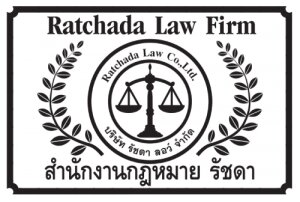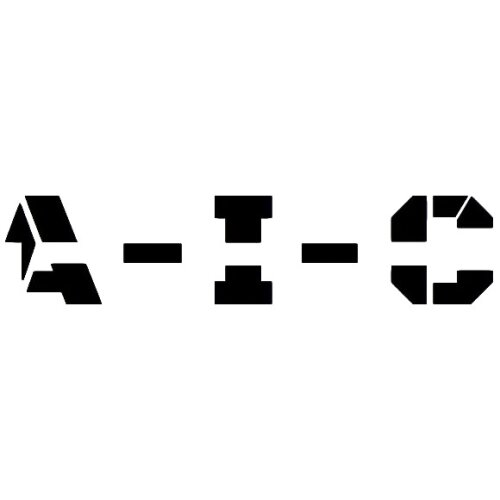Best Creditor Lawyers in Bang Kapi
Share your needs with us, get contacted by law firms.
Free. Takes 2 min.
List of the best lawyers in Bang Kapi, Thailand
About Creditor Law in Bang Kapi, Thailand
Creditor law in Bang Kapi, Thailand, is part of the broader civil and commercial legal framework that governs debt and credit relationships. These laws outline the rights and obligations of creditors and debtors, providing mechanisms for debt recovery, insolvency proceedings, and dispute resolution. The legal environment aims to balance the interests of creditors in recovering owed funds and debtors in maintaining fair treatment. Local practices and interpretations can vary, making it important for creditors to understand the specific legal landscape in Bang Kapi.
Why You May Need a Lawyer
Engaging a lawyer specializing in creditor law can be essential in several scenarios:
- Debt Recovery: If you're having difficulty collecting a debt, a lawyer can help navigate the legal avenues for recovery.
- Contract Disputes: Legal assistance can be crucial for resolving conflicts arising from loan agreements or credit arrangements.
- Bankruptcy and Insolvency: A lawyer can guide you through insolvency proceedings if a debtor declares bankruptcy.
- Enforcement of Judgments: Post-judgment, a lawyer can assist in enforcing court orders for debt repayment.
- Fraud and Financial Misconduct: Legal expertise is vital if there are allegations of fraudulent behavior affecting credit agreements.
- Negotiations and Settlements: A lawyer can help negotiate settlements or restructuring agreements with debtors.
- Credit Reporting Issues: Legal advice might be needed for disputes involving credit reports and records.
Local Laws Overview
Key aspects of local laws relevant to creditors in Bang Kapi, Thailand include:
- Civil and Commercial Code: Governs contracts, debt obligations, and enforcement mechanisms.
- Bankruptcy Act: Details the procedures for insolvency and bankruptcy cases, outlining creditor rights and priorities.
- Secured Transactions Act: Regulates secured credit transactions, including pledges and mortgages.
- Debt Collection Act: Sets out permissible methods and restrictions for debt collection practices, protecting debtor rights.
- Consumer Protection Act: Contains provisions affecting credit agreements with individual consumers.
- Laws on Interest Rates: Limit the interest rates that can be charged on various types of credit to prevent usury.
Frequently Asked Questions
What steps can I take to collect a debt in Bang Kapi?
You can start with a formal demand letter and, if necessary, escalate to legal action through the local courts to obtain a judgment for debt recovery.
What are the interest rate limits on loans in Thailand?
The interest rates are regulated by law, with specific caps depending on the type of loan. Exceeding these rates can result in penalties.
How does bankruptcy affect my ability to collect a debt?
In bankruptcy, creditor claims are subject to the insolvency process, which may involve restructuring or partial settlements as approved by the court.
Can I engage a lawyer to negotiate a settlement on my behalf?
Yes, a lawyer can represent you in negotiations and aim to reach an amicable settlement with the debtor.
What is the role of a secured transaction in debt recovery?
Secured transactions provide additional assurance for creditors by tying debt obligations to specific collateral, which can be claimed in case of default.
How long does it usually take to resolve a credit dispute in court?
Timelines can vary based on the complexity of the case and court schedules but expect several months to over a year for resolution.
What legal remedies are available if a debtor fraudulently transfers assets?
You can pursue legal action to void fraudulent transfers and recover assets through court orders.
How are debt collection practices regulated in Thailand?
Debt collection is regulated to prevent harassment and unfair practices, ensuring practices are ethical and compliant with the law.
Do I need to register as a creditor in a bankruptcy case?
Yes, registration is typically required to file claims in bankruptcy proceedings and participate in the distribution of the debtor’s assets.
What documentation is essential for a creditor in legal proceedings?
Key documents include the original credit agreement, payment records, correspondence, and any notices sent to the debtor.
Additional Resources
Consider reaching out to the following resources for further assistance:
- Department of Legal Execution: Manages law enforcement related to debt recovery and bankruptcy.
- Office of the Consumer Protection Board: Provides guidance on consumer credit issues and complaints.
- Thai Bar Association: Offers directories and resources for finding specialized legal practitioners.
- Local Law Firms: Several reputable firms specialize in creditor law and can offer personalized legal advice.
Next Steps
If you need legal assistance for creditor-related matters in Bang Kapi, consider the following steps:
- Consult a Lawyer: Seek out legal counsel specializing in creditor law for personalized advice and representation.
- Gather Documentation: Collect all relevant documents, such as contracts, payment records, and correspondence related to the debt issue.
- Understand Your Rights: Familiarize yourself with local laws and regulations that pertain to your situation.
- Explore Alternative Dispute Resolution: Consider mediation or arbitration as a less formal resolution method before resorting to litigation.
- Prepare for Legal Proceedings: If necessary, be ready to engage in formal legal action to enforce your rights as a creditor.
Taking these steps can help ensure you effectively manage and resolve your creditor-related matters in Bang Kapi, Thailand.
Lawzana helps you find the best lawyers and law firms in Bang Kapi through a curated and pre-screened list of qualified legal professionals. Our platform offers rankings and detailed profiles of attorneys and law firms, allowing you to compare based on practice areas, including Creditor, experience, and client feedback.
Each profile includes a description of the firm's areas of practice, client reviews, team members and partners, year of establishment, spoken languages, office locations, contact information, social media presence, and any published articles or resources. Most firms on our platform speak English and are experienced in both local and international legal matters.
Get a quote from top-rated law firms in Bang Kapi, Thailand — quickly, securely, and without unnecessary hassle.
Disclaimer:
The information provided on this page is for general informational purposes only and does not constitute legal advice. While we strive to ensure the accuracy and relevance of the content, legal information may change over time, and interpretations of the law can vary. You should always consult with a qualified legal professional for advice specific to your situation.
We disclaim all liability for actions taken or not taken based on the content of this page. If you believe any information is incorrect or outdated, please contact us, and we will review and update it where appropriate.









